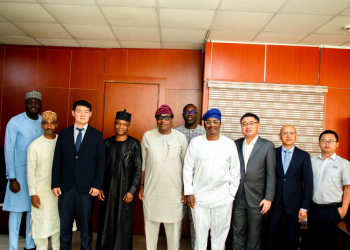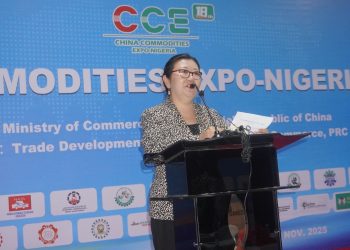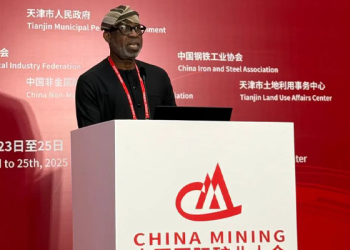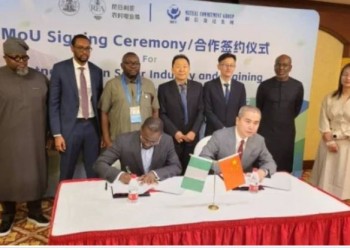Consumer Prices generally doubled in Lagos between 1939 and 1940. In February of 1941, under the Defence Regulations (Public Notice No.15) of 1941, the Colonial State imposed price control measures on essential food items in Lagos. The prices of items such as pepper, gari, and beans were controlled by the State. In March of 1941, other food items such as egusi (melon seed), rice, beef, mutton, and pork were added to the list. The price control measures were also extended to provincial markets.
The reaction of the workers to this war inflation was twofold. First, they fought for the elimination of the hourly employment system and other unfavorable conditions of employment. Secondly, they demanded a cost-of-living allowance (COLA).
In April 1941, the Railway Workers’ Union informed Railway Management that a strike would occur from May 1, 1941, if its demands were not met. On April 30, 1941, the General Manager finally met with the union’s officials. The colonial state gave the union the following concessions:
Wages for work on Saturdays since 1931 would be paid.
Manual skilled workers who had gone through an apprenticeship program would be included in the permanent establishment of the Railway Department, in the future. This would entitle them to all the privileges provided to public sector workers under General Orders. All manual railway workers would be granted full pay for public holidays.
Free transport to their point of origin during the leave period would be provided for railway workers in the permanent establishment.
The union’s demand for COLAs was still under consideration.
In addition, the Colonial State imposed new emergency legislation (Defence Regulations, 1941) making strikes illegal until trade disputes had been subject to arbitration. The union accepted the offer and the proposed strike was called off. However, the General Manager never implemented the agreements.
The union again started agitating for the implementation of the decisions of the Colonial State and set a new strike deadline for October 1, 1941, despite the new regulations making strikes illegal. Apart from the strike threat, the union embarked on many other actions. First, it encouraged railway workers to refuse overtime work. Secondly, it prepared all union branches for the proposed October strike by organizing workers at the shop level.
Thirdly, the union established an alliance with the African Locomotive Drivers’ Union and the African Civil Servants Technical Workers’ Union, the Posts & Telegraphs Workers’ Union, the Nigerian Marine Workers’ Union, and the Public Work Department Union to form a trade union coalition called the African Civil Servants Technical Workers’ Union. It also obtained support from Nigerian newspapers. The Railway Workers’ Union also encouraged railway workers to terminate all contributions to the war relief fund. Finally, it proposed an alternative plan for the implementation of the decisions of the Colonial State and submitted it to the Colonial State through the General Manager of the Railway Department.
On October 1, 1941, Lagos railway workers came to work looking angry. The Chief Mechanical Engineer, Mr. W. G. Wilson, decided to protect the machinery and ordered the mechanical engineering department’s gates locked. This essentially was a lock-out which was illegal under the new Defence Regulations banning strikes. The union’s response was immediate. The union led the workers on a spontaneous five-mile march to the Governor’s house. A new demand surfaced: WILSON MUST GO! Locomotive drivers and railway workers from other departments such as the Running Shed, Carriage and Wagon, and Stores also joined the demonstration. Market women, students, the unemployed, and the public, in general, expressed their support as the workers marched.
The Colonial State reacted very quickly to this expression of workers’ unity. The colonial State’s decisions would be implemented immediately according to the plan drawn up by the union. A Committee of Enquiry to investigate the effect of the price increases on the cost of living would be set up. The hourly system was terminated and the workers were paid all wage losses resulting from the system.1,800 railway workers from the Mechanical Workshops and Running Shed were transferred to the permanent establishment. The transfer entitled them to an increase in wages, 15 days of annual leave with pay, and free transportation as well as better promotion prospects and benefits from the Railway Provident Fund. It also gave them sick leave with pay and an opportunity to earn merit rises.
The CME was granted his voluntary request for an immediate transfer out of the country. The colonial State thus capitulated to all the workers’ demands. Six days later, the same benefits were extended to all public sector workers. Private sector employers were forced to give the same benefits to their employees or suffer mass resignations or strikes. Thus, the gains of the struggles of the manual railway workers were circulated throughout the waged sector of the Nigerian working class. Trade union unity helped to bring victory to the railway workers and benefits across the working classes as a whole.
The lessons learned were that (1) COLA is needed to mitigate against inflation for working people. (2) strikes and direct workers’ actions are needed to fight for COLA. (3) broad unity among trade unions and citizens is necessary for strikes to succeed. (4) the gains from one strike need to be circulated to other workers in the public and private sectors. Hopefully, these lessons can be applied to recent inflation trends among Nigerian workers.
Dr. Agbon, former ASUU Chairman, University of Ibadan, wrote from Dallas, United States.













































